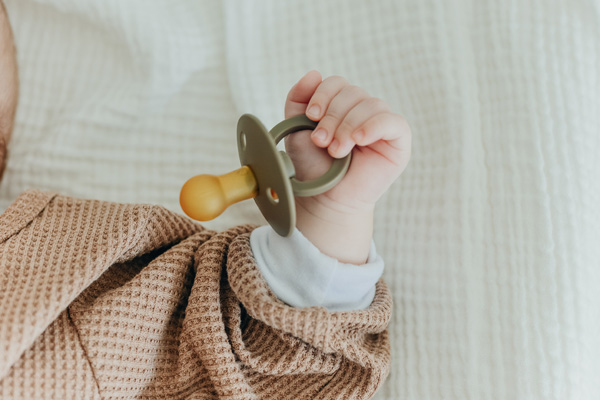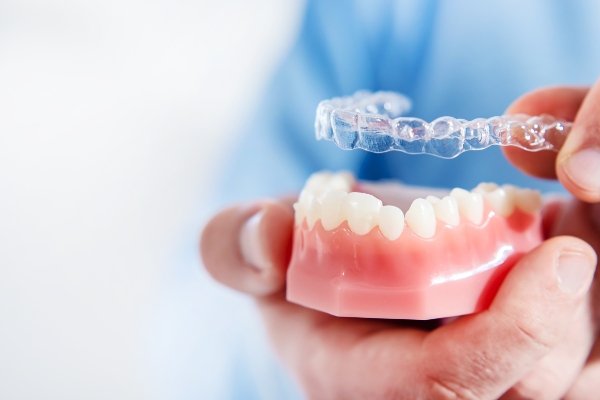 Concerned about your child's pacifier use? Read on to find out why it is important to break that habit sooner rather than later. Breaking an ingrained habit in a child is a difficult task. As a kid grows older and their behavior persists, it becomes important to seek a professional for dental habit counseling. According to the American Academy of Pediatrics, pacifier use should be stopped by the time the child is six months old.
Concerned about your child's pacifier use? Read on to find out why it is important to break that habit sooner rather than later. Breaking an ingrained habit in a child is a difficult task. As a kid grows older and their behavior persists, it becomes important to seek a professional for dental habit counseling. According to the American Academy of Pediatrics, pacifier use should be stopped by the time the child is six months old.
Dentists recommend removing the pacifier after five months of age to prevent emotional attachments that are difficult to stop. Dental arch development may also be affected by oral habits like pacifiers or thumb-sucking.
The importance of stopping pacifier use
Preterm infants and newborns who are having difficulty breastfeeding or being bottle fed may benefit from the use of pacifiers to help them start sucking. Parents in these kinds of circumstances often benefit from the advice of baby feeding professionals and lactation consultants. Long-term usage of pacifiers and tongue thrusting causes changes in the mouth’s shape and tongue position, an open bite, an inability to close the lips, and mouth breathing.
It becomes necessary to retrain the oral muscles, especially the tongue, to acquire the correct tone, placement, and function of the oral motor system. Therefore, parents struggling to stop their children’s pacifier habit may need dental habit counseling.
The need for dental habit counseling
Parents often wonder why it is so difficult to overcome a pacifier habit. Sucking on pacifiers and one’s fingers are non-nutritive behaviors that produce enormous endorphin and dopamine releases for the child. Previously, sensory habits were thought to have a psychological basis, but new data reveals that they may be neuromuscular. Sucking on a pacifier or finger stimulates the production of these “feel good” endorphins and dopamine chemicals. There is a need for methods to detach the finger or pacifier nipple from the palate to stop this chemical reaction.
Families must be ready to assist a kid in stopping the habit through dental habit counseling and using the critical component of positive reinforcements. It is common for these sessions to include a hands-on activity to keep the kids active. To keep track of their development and acknowledge their achievements, a progress calendar is recommended. During the process of habit elimination, children tend to react well to positive reinforcement.
Some families can incorporate a verbal or physical signal to urge pacifier-use cessation in public to minimize embarrassment. When a child’s mouth or airway is in an abnormal position due to oral habits, they may be more susceptible to bedwetting. The dentist can also teach the child proper breathing habits.
Final Thoughts
Many emotional and self-esteem disorders may arise from long-term routines. Inspire yourself to be your child’s partner on this journey while being a calm and supportive presence. If your child cannot seem to wean off pacifier use, get in touch with your pediatric dentist.
Request an appointment or call Precision Orthodontics & Pediatric Dentistry at 703-391-8800 for an appointment in our Reston office.
Recent Posts
Dental care for children often requires unique approaches tailored to their developing dentition and growing independence, and one type of care that they can receive is pediatric dental X-rays. However, parents often wonder whether exposing young children to X-rays is more harmful than helpful, so it is common to have questions about this type of…
A kid friendly dentist has many important jobs in your child’s oral wellness. Aside from cleaning your child’s teeth at semiannual appointments, the dentist will check on jaw and bite issues. As your son or daughter gets older, the dentist will also check on how the permanent teeth are coming in. There are ways the…
Cavity treatment for kids can help children maintain their long-term oral health. Tooth decay in children can lead to discomfort, infection, and long-term dental complications if left untreated. Fortunately, early detection and appropriate pediatric dental care can prevent complications and support healthy oral development as children grow up.Cavities develop when bacteria in the mouth feed…


